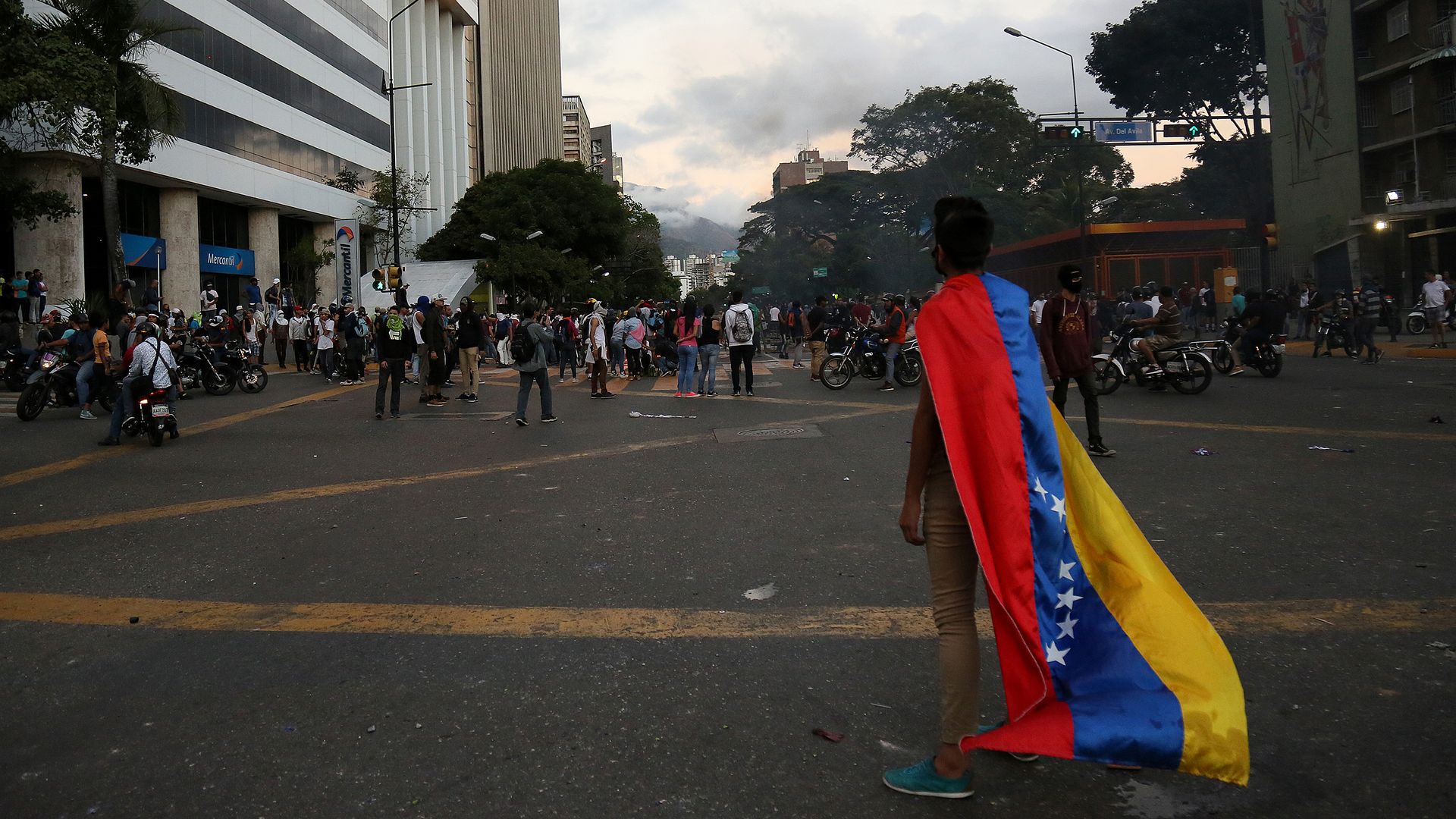Jan 24, 2019 - Energy & Climate
Expert VoicesVenezuela at crossroads as world leaders split on presidential support
Add Axios as your preferred source to
see more of our stories on Google.

A man wearing a Venezuelan flag protesting Nicolás Maduro's government after Juan Guaidó declared himself interim president, in Caracas, Venezuela, on Jan. 23. Photo: Edilzon Gamez via Getty Images
